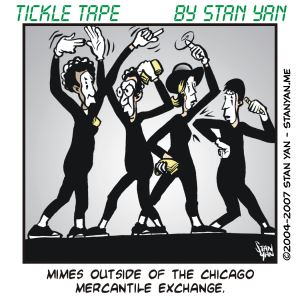Market decisions are often driven by fear and greed. When we are afraid of potential losses, we sell. When we are greedy, we buy. Behavioural economists argue that it’s a little more complicated than that, however. Regret and hope are also in play. People may buy and sell to avoid feelings of regret and may hold on to losing positions out of denial and a fruitless hope that a loser will turn around.
Emotions play a powerful role in decision-making. Other emotions have a more indirect influence. When we are tired or frustrated, we may act hastily, or due to mere inattention, we may make a trading error. Similarly, during a serious drawdown, it’s hard not to feel a little depressed and frustrated to the point that we just want to give up the whole business of trading altogether. These examples of the influence of emotions on trading decisions are relatively obvious, but recent research studies suggest that emotional states may also have extremely subtle effects on economic decisions.
Dr Jennifer Lerner of Carnegie Mellon University has conducted a series of fascinating studies on how emotional states may influence trading decisions. For example, in one study, it was shown that people who are prone to experience intense levels of anger tend to be willing to take greater risks. Anger is experienced when we feel slighted or when we believe that we were unfairly treated. If you take things a little too personally, it’s easy to feel slighted by the markets when market events don’t go your way. To gain a sense of control, we get angry. We tend to want to fight back and enact our revenge. At these times, we may act out of desperation and take risks that we shouldn’t.
Emotions, such as disgust and sadness, may also have subtle influences on economic decisions. In a recent study reported in “Psychological Science,” Dr Lerner and her colleagues showed that emotional states that have nothing to do with a financial issue might have a subtle impact on a subsequent economic decision. Participants watched films that made them feel one of two emotions, sadness or disgust. The movies had absolutely nothing to do with business or decision-making.
The first film was about a loved one passing away, while a second film was about a man using an unsanitary public toilet. Participants were subsequently asked to estimate the value of possession while in either a sad or disgusted emotional state. At the start of the experiment, participants were given a pen and asked to hold on to it. After the emotional states were elicited, participants were asked to estimate the value of the pen if they were to sell it. In some ways, you might see how this is analogous to holding a position and determining how much the price of the stock or commodity needs to move before you would be willing to sell.
In contrast to participants in a neutral mood, participants who were incidentally disgusted or sad greatly underestimated the value of the pen; neutral participants estimated its value as about $4.50, while sad and disgusted participants put its value at about $3.00. The interesting aspect of this study is that there was no obvious connection between the emotional state and the financial decision to sell. It would be as if you watched a sad television show right before the open, and for no good reason whatsoever, under-valued a position and immediately sold too early. One event should have nothing to do with the other, yet in Dr Lerner’s study feeling sad or disgusted influenced a subsequent economic decision.
Ideally, it would be nice if we could trade in a Spock-like, purely logical mindset, but we are merely humans. We experience a variety of emotions before and during the trading day. The impact of common emotions of fear, greed, hope, and regret may seem obvious to many. But it’s possible that incidental emotions elicited by events that have nothing to do with the markets may bias our decisions. It just goes to show that trading is a psychological endeavour. Keeping extreme emotions at bay is paramount. The more you can stay logical and objective, the more you’ll trade profitably.


